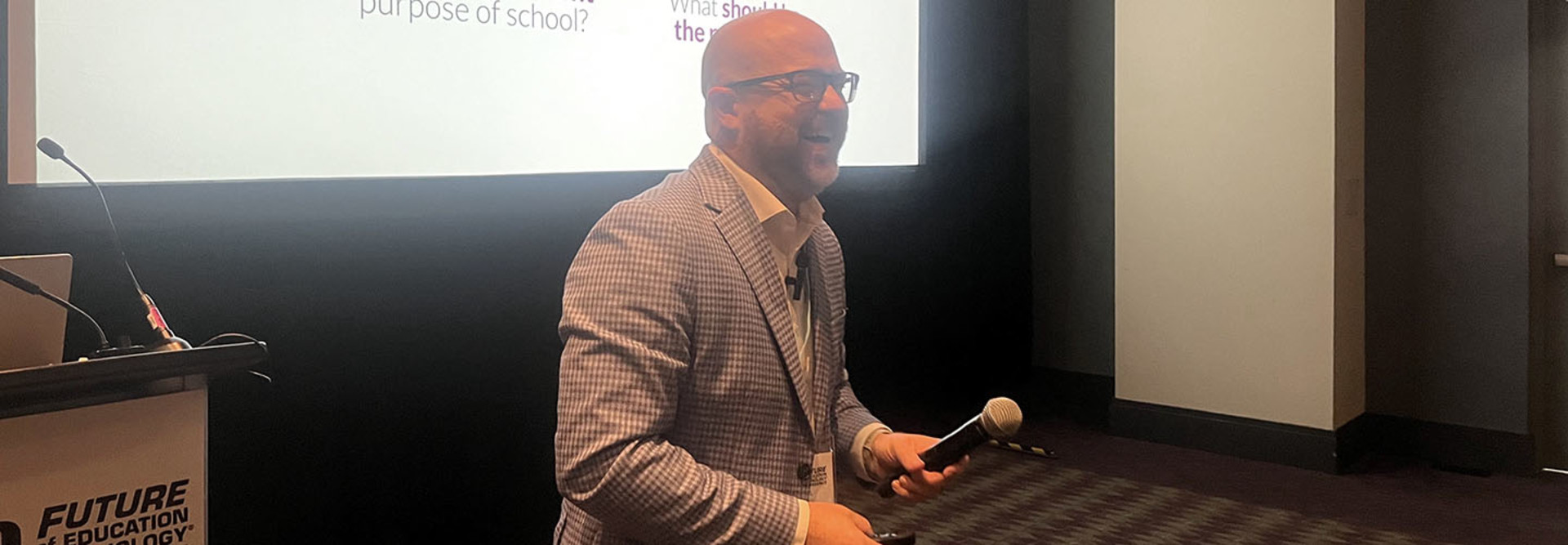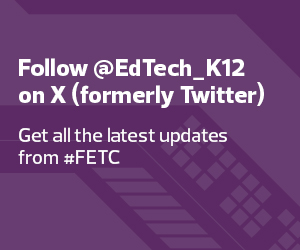He explained that the model is outdated and out of step with a world that has changed dramatically.
Meechin worries that today’s older teaching models are “preparing kids for a factory model of living, when the factory model stuff is being done by autonomous robots.”
For Meechin, that style of teaching and learning doesn’t hold up to the complex world we live in today. It doesn’t align with the critical thinking skills that graduates will need. “The system is not working for what is going to be required of our kids,” he said.
LEARN MORE: These schools are using immersive technology to introduce students to future careers.
Get the Purpose Behind Learning
Meechin added that to really prepare students for the future, educators will need to start with a very basic question: What is the purpose of school?
Attendee responses were varied: preparing students to be contributing members of society, passing tests and adapting to constant change.
He then shared the results from a 2022 survey, which found developing practical skills and thinking critically were among the top five public priorities for the modern education system.
“Think about these skill sets and what you could potentially build within a curriculum,” Meechin said. “That’s exciting stuff. We have to be intentional about how we make that right, where we are going and the purpose of school for the 21st century.” Which is not teaching students how to pass a test.
WATCH: Esports helps young gamers build connections and gain tech skills.












